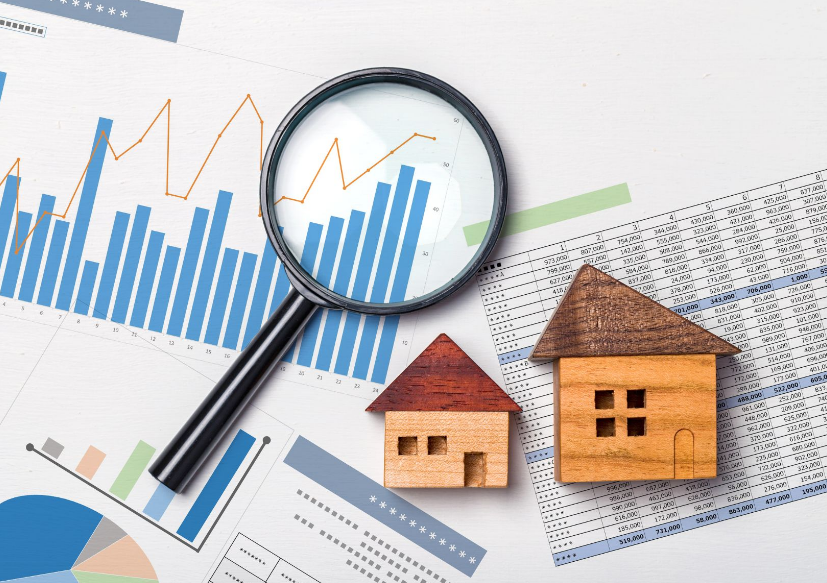Investing in real estate can be a rewarding venture if you know what to look for in a potential property. The key is identifying properties that promise good returns on your investment, whether through rental income or appreciation.
Here’s a friendly guide to help you spot a promising investment property.
Understand the market
Before diving into real estate investment, it’s crucial to understand the market you’re entering. Research local market trends, including property values, rental rates, and vacancy rates. Pay attention to economic factors such as job growth, population growth, and infrastructure development. A strong local economy often indicates a healthy real estate market.

Location
Location is a fundamental factor in real estate investment. Look for properties in desirable neighborhoods with good schools, low crime rates, and easy access to amenities such as shopping, dining, and public transportation. Proximity to parks, recreational facilities, and cultural attractions can also add value. A prime location can attract high-quality tenants and ensure steady appreciation.
Condition of the property
Inspect the condition of any property you’re considering. Look beyond the cosmetic appearance and check for structural issues, plumbing and electrical systems, roofing, and foundation integrity. While some repairs can be manageable, extensive renovations can quickly eat into your profit margins. Hiring a professional inspector can help you identify potential problems before making a purchase.
Potential for rental income
If you’re planning to rent out the property, consider its rental potential. Research average rental rates in the area to gauge what you can charge tenants. Look for properties that can provide a positive cash flow, meaning the rental income exceeds your monthly expenses, including mortgage payments, property taxes, insurance, and maintenance costs.

Property appreciation
Evaluate the property’s potential for appreciation. Properties in growing areas with expanding infrastructure, new businesses, and increasing demand are likely to appreciate over time. Historical data on property values in the area can provide insights into future trends. Investing in properties that are likely to increase in value can lead to significant returns when you decide to sell.
Analyze the neighborhood
The neighborhood can significantly impact the success of your investment. Look for areas that show signs of growth and revitalization, such as new businesses opening, infrastructure improvements, and rising property values. Pay attention to demographic trends, as an influx of young professionals or families often signals a neighbourhood on an upward trajectory—an approach commonly applied when assessing residential developments such as Venaso Bali investment villas.
Financial considerations
Assess the financial aspects of the investment carefully. Calculate the potential return on investment (ROI) by comparing the property’s purchase price with expected rental income and appreciation. Consider the cost of financing, property management fees, maintenance costs, and potential vacancies. A thorough financial analysis can help you determine if the investment makes sense.
Look for value-add opportunities

Value-add properties offer opportunities to increase their value through renovations or improvements. Look for properties that are underpriced due to cosmetic issues or minor repairs. By upgrading the property, you can increase its rental income and market value, enhancing your returns on investment.
Check zoning and regulations
Ensure the property complies with local zoning laws and regulations. Some areas have restrictions on rental properties or specific requirements for renovations. Understanding the local laws can help you avoid potential legal issues and ensure your investment property is compliant.
Get professional advice
Consulting with real estate professionals can provide valuable insights and guidance. Real estate agents, property managers, and financial advisors can help you navigate the complexities of real estate investment. They can provide market analysis, identify potential properties, and assist with financial planning.
Spotting a good investment property requires a combination of research, analysis, and intuition. By understanding the market, evaluating the property’s condition and location, and analyzing financial factors, you can make informed decisions that lead to profitable investments. With careful planning and the right approach, real estate can be a lucrative addition to your investment portfolio.
If you have any questions about how to spot an investment property, reach out to Jennifer Yoingco, REALTOR®, and her team, The Houston Suburb Group. They’ll help you get ready to EXPERIENCE LIVING IN HOUSTON TEXAS!

Download our FREEBIES here!
The Ultimate Home Buyer’s Guide
The Ultimate Home Seller’s Guide
Find us on YouTube!
#jenniferyoingcorealtor #jenniferyoingco #JenniferYoingcoTexas #houstonsuburb #houstonsuburbs #houstonsuburbgroup #texasrelocationexperts #HoustonRelocationExpert #HoustonRelocationSpecialist #NurseRelocationExpert #NurseRelocationSpecialist #newhomeconstruction #thehighlands #ravennahomes #ravennahomesforsale #ravennahomesrealtor #ravennahomesrealestateagent #springtexas #tomballtexas #livinginhoustontexas #livinginhouston #thewoodlandstexas #conroetexas #montgomerytexas #cypresstexas #newcaneytexas #portertexas #katytexas #pearlandtexas #richmondtexas #fulsheartexas #sugarlandtexas #houstontexas #magnoliatexas #hockleytexas #pinehursttexas #jerseyvillagetexas #humbletexas

